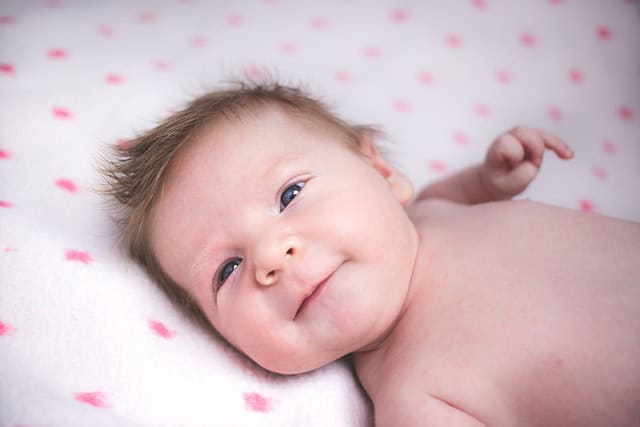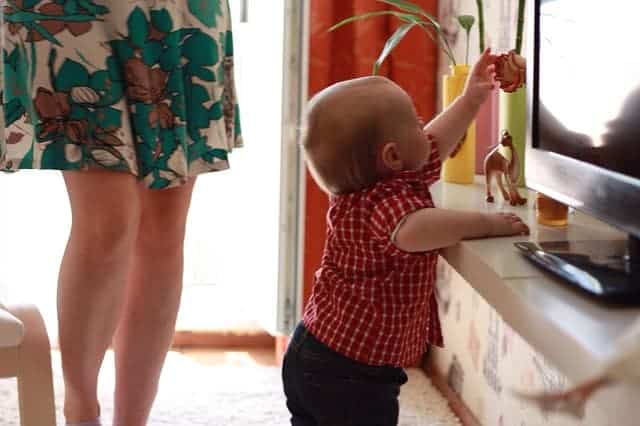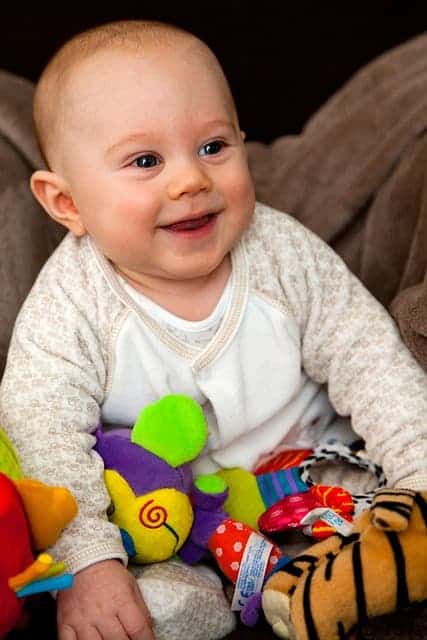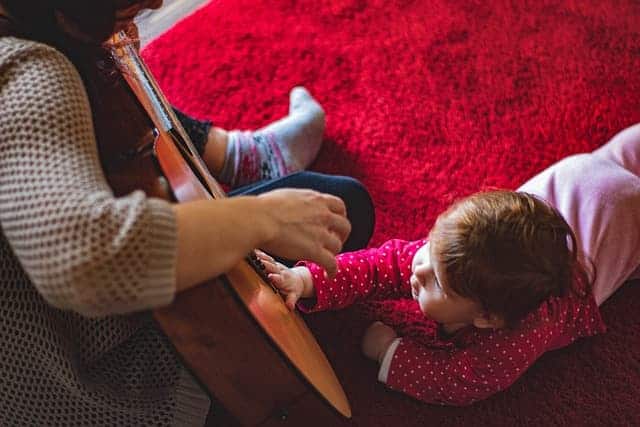Development in children is a continuous and complex process that occurs from birth through adulthood. It is a process that is influenced by a large number of factors, be they biological, psychological, social. In this article, we are going to focus on the development of toddlers and the intellectual progress made during this period.
Support for Positive Parenting: Psychomotor Development
Above all, during the first 6 months of life, babies have instinctive and repetitive behaviors, such as the movement of the arm or the swinging of the legs. A Baby cries from birth and smiles instinctively what is often called "smile to the angels" because we do not know what causes this.

In addition, they are also beginning to show signs of progress, they will gradually develop new abilities such as:
- of the abilities motor-visual : he looks at objects in the distance,
- of the sensory abilities : he will try to grab and manipulate objects or his mother's hair if she has long hair.
On a physical level, babies learn to turn their heads, crawl, sit up and walk. Each child has a different rhythm, they will not all develop the same at the same age but their evolution will be spectacular between 6 months and 2 years.
Support for Positive Parenting: Language
Babies start making sounds to communicate between 4 and 7 months. Around 1 year old, babies often say several words that are often understandable by their parents and siblings: Dad, Mom. It is necessary to encourage him and also to repeat the word to him correctly if he does not say it quite well. It is by dint of repetition that he will acquire a good elocution.
It is often around the age of 2 that the child manages to make himself understood by strangers. He will be able to understand simple instructions, such as "go get your bib" before the meal, for example from the age of 1 year. Babies grow and continually learn new ways to communicate. For example, enchantments, facial expressions, and gestures are used to support their speech.
Support for Positive Parenting: Walk
Walking is an important motor skill improvement that usually begins between 12 and 24 months. Before they begin to walk, babies must learn to sit and stand unaided. Most babies learn to walk by making short, unsteady movements. At first, he will try to grab onto something. If it is a chair, for example, it is essential to ensure that it does not tip over on him.
It is often in a playpen that it will takeassurance because he can't hurt himself. It often happens that from his first attempts to stand up the child falls on his buttocks, he may start crying but if he sees you laughing then he will understand that it is not serious and may even do it for the purpose to have fun. Little by little he will go around the park and it is by dint of trying that he will progress, with a lot of practice and patience, he will soon be able to walk with confidence.

Support for Positive Parenting: Intellectual Advances
The intellectual progress of toddlers is visible through their ability to solve problems and learn new concepts. Babies begin to recognize and name objects in books and understand basic concepts such as top, bottom and front/back. So they can start solving puzzles and to play games simple ones that test their understanding and skill.
Support for Positive Parenting: Parental Stimulation
Although the toddler development is primarily an innate function, parents can contribute to their growth through stimulating activities. Talk to babies, play with them and encourage them to explore and interact with their environment. Besides, parents can encourage babies' linguistic and intellectual development with the help of
- Youth book : the children will begin to identify objects in the pictures, through the stories that can be read.
- Educational games : games with geometric shapes to insert, puzzles, cards like Baby Memo.
A large number of activities allow them to develop their creativity and imagination.




The development of toddlers is a dynamic and exciting process. For the parents, but also for everyone around the child, your role is essential in his development. The more the child is aware of his environment, the more he will develop an interest in learning. His curiosity will be aroused. He will make a lot of effort to please you and participate in the activities offered to him.
When the child is stimulated, he progresses very quickly provided that he is encouraged by applause when he succeeds in a new activity, laughter when he fails near the goal. In any case, it is essential to always apply the Caring Parenting : encourage him, never make fun or show yourself discouraged. Your interest and energy will be infectious.
